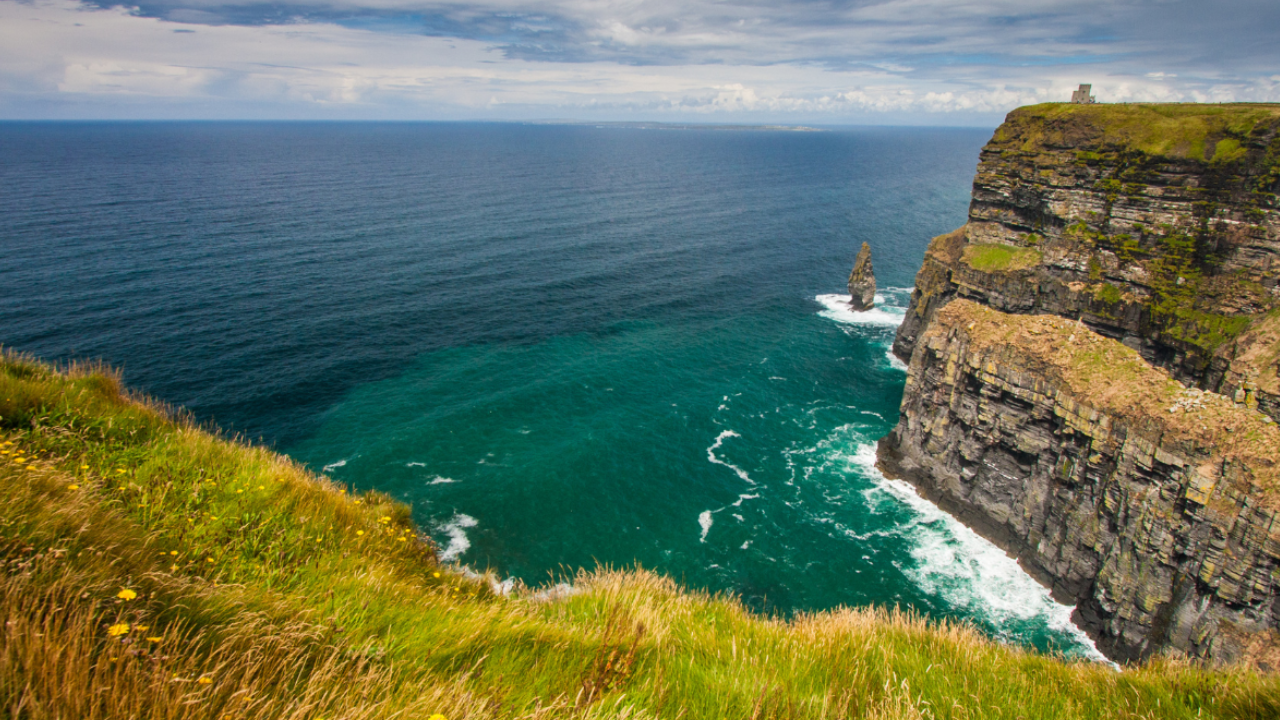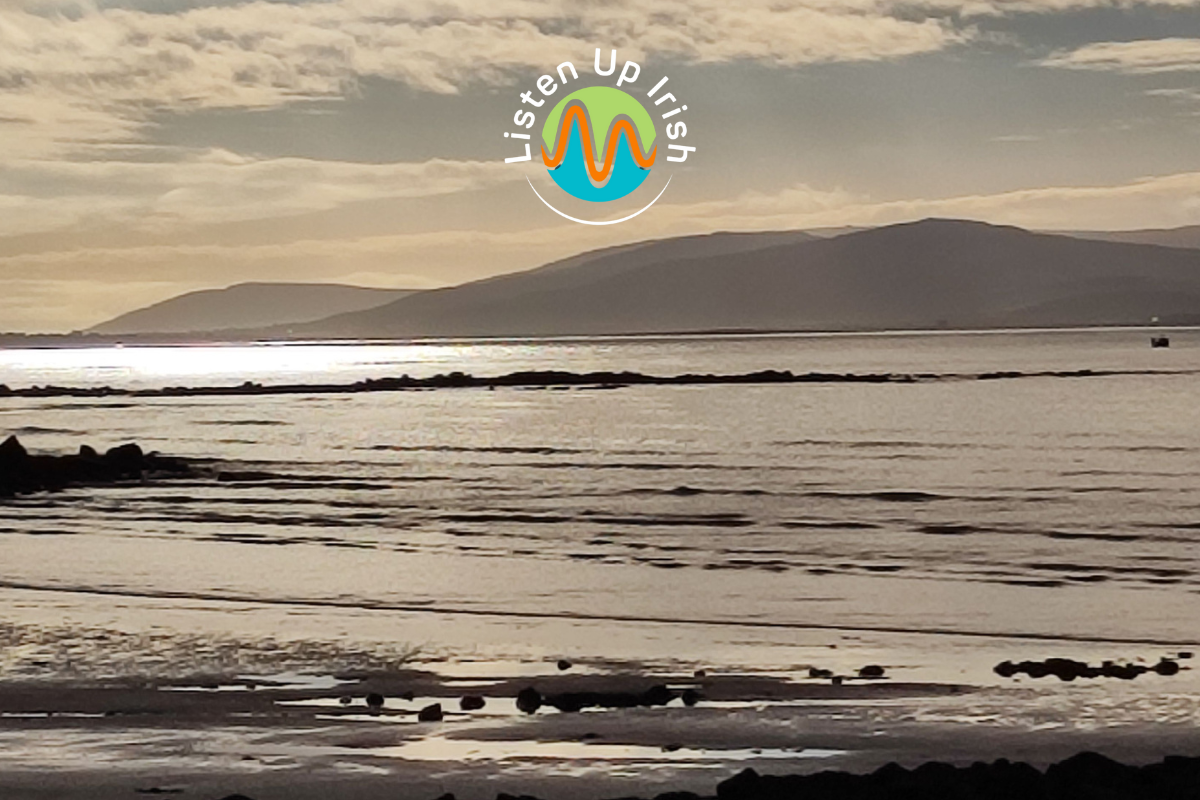Naomh Bríd - St Brigid

A Short Guide to the Traditional Gaelic Festival
February 1st is the feast day of one of Ireland’s Patron Saints; the nurturing, caring and compassionate Saint Brigid (also spelled 'Saint Bridget'). This day marks the end of the cold, dark winter days and the beginning of spring - it has been celebrated by the Irish for many centuries and continues to be celebrated to this day. And of course, there’s an extra cause for celebration this year as St. Brigid’s Day is now a lá saoire poiblí / a public holiday!
First things first ...
here's some useful vocabulary about St. Brigid in Irish:
Saint Brigid Naomh Bríd
St. Brigid's Day Lá Fhéile Bríde (the word 'féile' means 'festival')
St. Brigid's Cross cros Bhríde

(You might have noticed how the word for 'Bridget' is 'Bríd' - but that there are some different forms of it: Bríd / Bhríde /Bríde!)
Ná lig dó cur isteach ort!
Don't let it bother you....just notice it for now!
In my online Irish language school, All About Irish, I help adults to learn to speak Irish in a simple and straightforward way. I offer a number of Irish language courses to choose from
that are all taught online, with a mixture of live classes, self-study options and courses to suit all learners, no matter what their current ability or experience is with the Irish language. (And while all these spellings of the name 'Bríd' might seem confusing at first it can all be easily explained in my online courses ;-) )
And now, back to Brigid...
Who is Saint Brigid?
Saint Brigid, also known as Muire na nGael, (Mary of the Gaels), is thought to have been born in Faughart, just north of Dundalk, Ireland sometime around 450 AD. Saint Brigid was named by
her father after one of the most powerful pagan goddesses: the goddess of fire. Saint Brigid is one of Ireland’s 3 patron saints, alongside St Patrick and St Colmcille and is the only female patron saint. She dedicated her life to God, and went on to found many convents all over Ireland with the most famous one being in Co. Kildare. Saint Brigid is known to be the patroness of many things - from healing, to protection, to poetry and learning.
What Miracles Did Saint Brigid Perform?
Saint Brigid gained prominence for the many miracles that she performed, and for the many people that converted to Christianity after her. Just some of the many miracles that Saint Brigid
is believed to have performed include miraculously bringing food to families, turning wooden columns into trees, curing conditions such as blindness and muteness, turning bathwater into beer (her party trick), saving women from death and assault, and much more. Miracles supposedly continue to occur at Saint Brigid's shrine, and people believe that her powers continue to work beyond the grave and to help people in Ireland.
When is Saint Brigid’s Day?
Saint Brigid's day is celebrated on February 1st, marking the beginning of spring. Since 2023 it is an official bank holiday in Ireland. Saint Brigid's day, also known as Imbolc, is one of the four
key festivals of the ancient Celtic year, alongside Bealtaine, Lughnasadh, and Samhain. These days mark the transition from one season to the next, and were always traditionally celebrated
on the evening of the day itself.
How is Saint Brigid’s Day Celebrated?
Although Saint Brigid lived over 1500 years ago, her life is still very much marked in Ireland today. One of the many traditions on Saint Brigid’s day is to symbolically welcome Saint Brigid into
your home on the day, with an offering of food and drink. People also leave traditionally left clothing outside of the home on the eve of Saint Brigid's day, with the belief that it would be blessed by her.
One of the main traditions is making a cros Bhríde (a St. Brigid's cross). This is part of the arts and crafts programme in many primary schools up and down the country, and many is the lopsided cross that will make its way home in a schoolbag at this time of year! The cross is made from either straw, or rushes. Over the year as the rushes dry out the colour of the cross changes from green to yellow. The cross should be made on the 31st January, and left out overnight, before being brough into the house on St. Brigid's Day and placed over doorways or hung from the rafters. The cross is said to bring protection to the house and to all in it.
Range of Irish Language Courses to Choose From
Here at All About Irish, I have a range of Irish language courses to choose from. No matter whether you are a complete beginner to the Irish language, or have some knowledge of Irish there is a course to suit you. I offer an Irish For Beginners Course, Beyond Beginners Course, Self Study Courses and Irish Literature Courses among many more.
When you study with me you will be provided with everything you need to learn Irish successfully - including online content being delivered to your account each week consisting of explanatory videos, sound recordings, online quizzes and worksheets. You will also have access to a downloadable course handbook, downloadable booklets and much more.
Fully Online Learning
I make the Irish language accessible to everyone; learn from the comfort of your home with my fully online courses and become fully fluent in Irish with my online learning.
Both my Irish For Beginners and Beyond Beginners courses are mixtures of live classes (you can choose to take just 1 live classes, or all 8 live classes) as well as self-study online content.
All of the content will be delivered to your online account so you can access it from wherever you are, and you will have access to it for 6 months after the end of the course if you decide to revisit any of it to top-up your language skills.
Step By Step Expert Learning and Support
When you learn with All About Irish, you will be taken step by step through the Irish language by myself, Patricia Nic Eoin. I am from Kinvara, a small village in the West of Ireland, and am a fluent Irish speaker with many years of experience teaching the Irish language.
You will be amazed by how quickly your knowledge of the Irish language will grow, with my unique teaching methods and guidance. I will be there to help you through your study, and to answer any questions that you have during live classes, whilst supporting you by email between classes with anything that you need.
Many people think that Irish is a really difficult language to learn. I have helped so many people learn to speak Irish, and would love to help you too. I make learning Irish quick and easy, and you will become a pro at speaking Irish in no time when you study with me. My online Irish courses are engaging, interactive, and fun - making learning the Irish language a great experience.
If you’d like to learn more about my Irish language courses here at All About Irish, you can contact me today. I welcome you to fill out my online contact form, and I will be in touch with you shortly.
Aon cheist? Any questions? Please don’t hesitate to contact me. I am always more than happy to answer any questions that you might have, and to provide you with further information on my Irish language courses.




